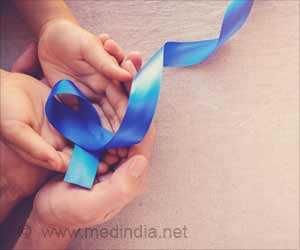Experts weigh in on the most appropriate place to seek care for all kinds of medical conditions.

While the answer is not always cut and dry, knowing the different treatment options available at a Northwestern Medicine immediate care center verses a Northwestern Medicine emergency department could not only save your life, but also time and money. Northwestern Medicine operates two Chicago immediate care centers located in River North and Lakeview and three suburban clinics in Deerfield, Glenview and Evanston, said Jack Franaszek, MD, medical director of Northwestern Medicine immediate care centers.
"In many ways, immediate care is an extension of a primary care physician's office," Franaszek said. "Sometimes people can't get an appointment at their doctor's office so we fill in the gap by diagnosing and treating things like sore throats, coughs, ear aches and simple cuts and sprains. While these aliments may be considered minor in the medical community, they are not minor to the person experiencing them."
Other conditions best treated at immediate care centers include asthma, diarrhea, flu, pink eye and urinary tract infections. Minor accidents, skin problems, animal bites and sprains can also be treated at immediate care centers.
No appointment is needed to be seen at a Northwestern Medicine immediate care center and all are open 8 a.m. to 8 p.m. 365 days a year. While patients don't need to have a Northwestern Medicine physician if a specialist or follow-up care is required, referrals are available, Franaszek added.
On the other hand, a Northwestern Medicine Emergency Department is more appropriate for patients with severe medical issues such as a blow to the head, concerning stomach pains, or profuse vomiting. If you need an ultrasound, CT scan or extensive blood work, the best place is the emergency room, said Rahul Khare, MD, a Northwestern Medicine emergency medicine physician.
Advertisements
Patients with chronic diseases such as diabetes or heart disease, or who may be dehydrated and in need of IV therapy should bypass immediate care and go directly to the Northwestern emergency department, Khare added.
Advertisements
About Northwestern Medicine
Northwestern Medicine is the collaboration between Northwestern Memorial HealthCare and Northwestern University Feinberg School of Medicine around a strategic vision to transform the future of healthcare. It encompasses the research, teaching and patient care activities of the academic medical center. Sharing a commitment to superior quality, academic excellence and patient safety, the organizations within Northwestern Medicine comprise more than 9,000 clinical and administrative staff, 3,100 medical and science faculty and 700 students. The entities involved in Northwestern Medicine remain separate organizations. Northwestern Medicine is a trademark of Northwestern Memorial HealthCare and is used by Northwestern University.
About Northwestern Memorial Hospital
Northwestern Memorial is one of the country's premier academic medical center hospitals and is the primary teaching hospital of the Northwestern University Feinberg School of Medicine. Along with its Prentice Women's Hospital and Stone Institute of Psychiatry, the hospital has 1,705 affiliated physicians and 6,769 employees. Northwestern Memorial is recognized for providing exemplary patient care and state-of-the art advancements in the areas of cardiovascular care; women's health; oncology; neurology and neurosurgery; solid organ and soft tissue transplants and orthopaedics.
Northwestern Memorial has nursing Magnet Status, the nation's highest recognition for patient care and nursing excellence. Northwestern Memorial ranks 10th in the nation in the U.S. News & World Report 2014-15 Honor Roll of America's Best Hospitals. The hospital is recognized in 14 of 16 clinical specialties rated by U.S. News and is No. 1 in Illinois and Chicago in U.S. News' 2013-14 state and metro rankings, respectively. For 14 years running, Northwestern Memorial has been rated among the "100 Best Companies for Working Mothers" guide by Working Mother magazine. The hospital is a recipient of the prestigious National Quality Health Care Award and has been chosen by Chicagoans as the Consumer Choice according to the National Research Corporation's annual survey for 15 consecutive years.
Source-Medindia












